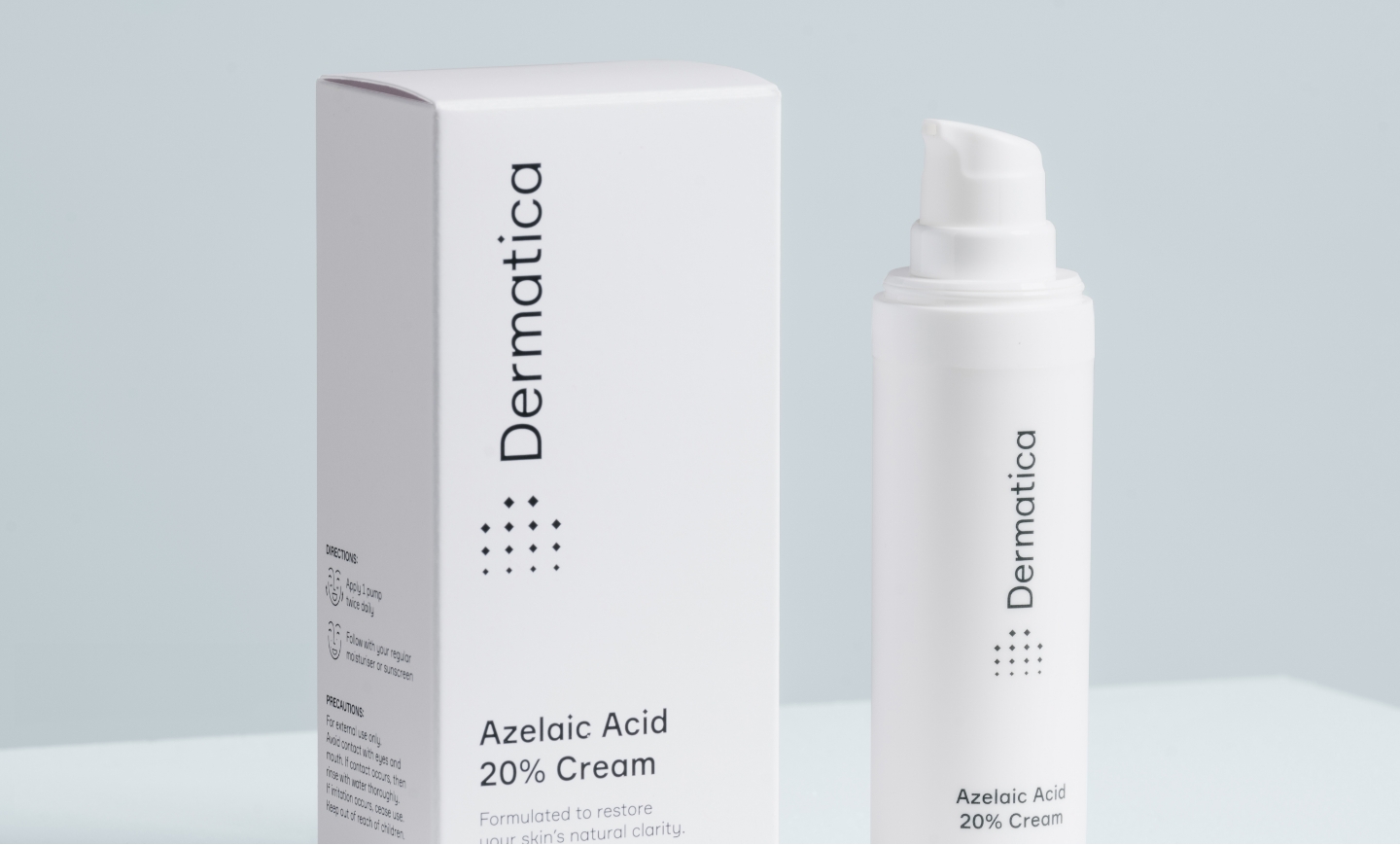There’s a lot of hype about natural skincare products. But what’s their place in a skincare routine, and how do they work with prescription skincare products? Here’s our breakdown of what prescription skincare is and whether it can be ‘natural’. We’ll also debunk some of the science behind natural products.
What’s so good about prescription skincare?
Prescription skincare will always be more effective than non-prescription skincare.
Prescription actives are the ingredients that’ve been studied rigorously under clinical trials for quality, safety and efficacy, and they’re heavily regulated. This is because they’re extremely powerful and have the potential to bring greater benefits to your skin. Prescription-strength skincare can treat a range of problems, like acne, pigmentation, melasma and ageing skin. Cosmetic, or ‘retail grade’ skincare, mostly only has to be tested for quality and safety, so while using these products is unlikely to cause harm, they don’t always have clinically proven benefits.
The potency of prescription ingredients means that they can cause greater side effects, but these are largely manageable if you experience them. A medical professional can talk to you about your individual skin goals and decide whether these ingredients will help you reach them, as well as monitoring any side effects you get. If you have a prescription with Dermatica, our dermatology experts are on hand to help you as your skin adjusts to your new routine, and adjust your formula accordingly.
It is, however, unlikely that you’ll be able to look after your skin using just prescription-strength products only. These powerful formulas are generally leave-on treatments, similar to serums. In a skincare routine, you’ll also need a cleanser, moisturiser and sunscreen, which won’t be prescription products. And again, due to the strength of many of these formulas, using too many at once can cause irritation, so it’s important to be selective based on the results you want to see!
Can Prescription Ingredients Be Natural?
A lot of prescription skincare ingredients have been found in nature. Azelaic acid — which is used as a treatment for acne and rosacea — can be found in wholegrain cereals, and was first isolated from yeast. Tretinoin — a form of vitamin A that’s used for reducing fine lines, pigmentation and reducing acne — is naturally found in rosehip seed oil. Mushrooms and bee propolis also contain the highly effective, hyperpigmentation-reducing hydroquinone.
Do Natural Ingredients Work
It’s difficult to say. Firstly, it’s important to remember that ‘natural’ does not always mean effective, or safe. Many natural forms of these ingredients might not be concentrated enough to make a difference — for example, you would need 85 litres of rosehip seed oil to get the same amount of tretinoin as you’d find in a 30g tube of a prescribed 0.1% tretinoin formula.
There’s also a lot of variation in natural ingredients. With rosehip oil, for example, the amount of tretinoin in it will depend on the variety of rose, the growing conditions, and the way that the oil is extracted. This means that you don’t know how much of the active ingredient your skin is getting.
By contrast, prescription ingredients are carefully regulated to ensure they’re both safe to use and going to give you consistent results. So, we can’t always say natural ingredients will work, whereas we can clinically prove the benefits of prescription ingredients.
Should I Use Natural Skincare Products
Natural ingredients aren’t necessarily safer for your skin. Prescription products are mostly formulated with synthetic ingredients, or highly purified ingredients extracted from nature. This means that there’s a very limited number of ingredients in the final product, so the chance of your skin being sensitive is more predictable. The strict regulations surrounding prescription skincare products also means they are widely acknowledged as safe to use.
On the other hand, nature is full of allergens and irritants. People commonly react to essential oils, for example. Some essential oils can also cause phototoxic reactions, where your skin becomes inflamed in the presence of sunlight. Ever heard of ‘mojito burn’, or ‘margarita burn’? It’s common on holiday, and it’s where the natural oils in mint and lime react with UV light to cause burns on your skin (so be careful if you’re enjoying a cocktail in the sun!) If your skin isn’t sensitive, then most natural products will probably be fine to use, but there are no guarantees — especially with formulas that are homemade, or aren’t mass market, because they aren’t regulated by experts.
The Bottom Line
An ingredient being ‘natural’ doesn’t mean that it’s safer — it can sometimes mean the opposite, if it hasn’t been tested by clinical experts. Prescription skincare is backed by science and, when used under the guidance of dermatologists, the surest way of achieving your personal skin goals.
Ready to start your prescription skincare journey? Start your free online consultation. Already using Dermatica?
Dr Catriona Maybury
Dr Catriona Maybury is a Consultant Dermatologist, working as Medical Lead for Dermatica and at St George’s Hospital in London. Catriona completed her specialty training at St John’s Institute of Dermatology in London. Catriona has a special interest in medical dermatology, completing a PhD in liver fibrosis amongst psoriasis patients at King’s College London. Catriona is a certified coach and worked as Dermatology Section Editor for the British Medical Journal.





